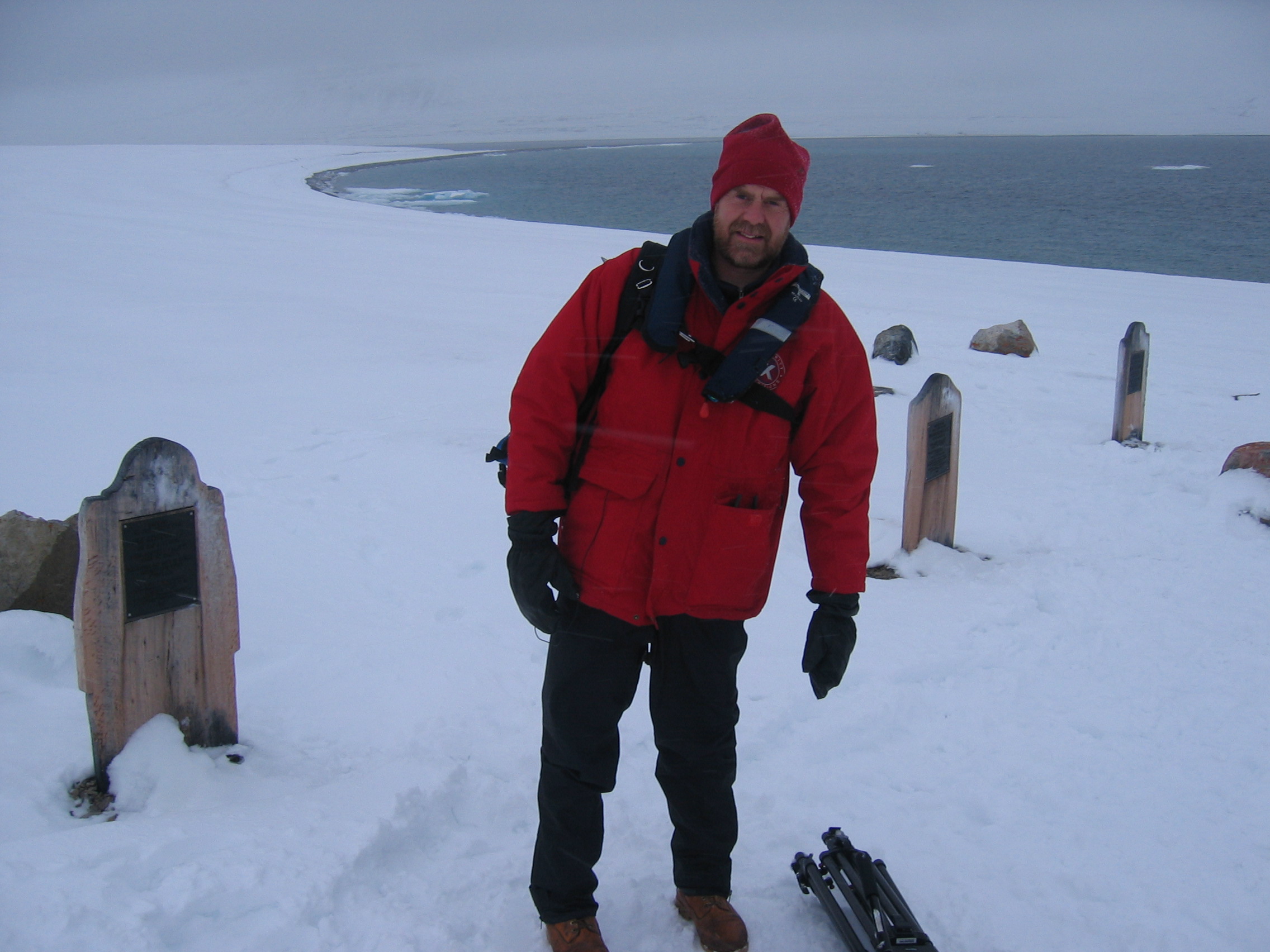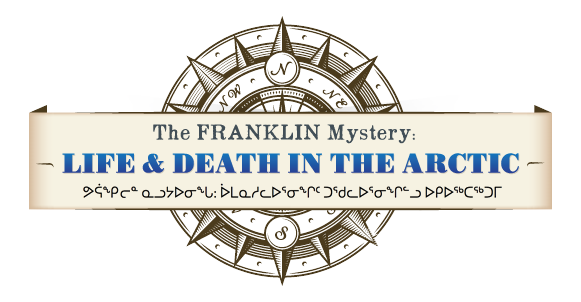Interview with Andrew Lambert

Professor Andrew Lambert of King's College London UK, is a British naval historian and commentator for various British historical documentaries, whose book Franklin: Tragic Hero of Polar Navigation was published in 2009.
Lyle Dick – Interview with Andrew Lambert, Professor at King’s College
1) When and how did you first hear of the missing expedition of Sir John Franklin?
The Franklin story is part of the fundamental mythos of the Royal Navy, so if you’ve been reading naval history as long as I have- I was probably four or five when I came across Franklin. I’ve been a naval historian from the time I could read, so I’ve known about this for a very long time. But I’d never taken it seriously as a research subject, even though the nineteenth century is my area, until we had a meeting with a film producer and a director at Somerset House, right here at King’s College in 2004. They said, did I know about the expedition and I said yes- then they asked, was I going to come to the Arctic with them and film it and I said yes, when, and they said next week. So within the space of a week I went from knowing enough about this to write one side of a piece of paper to having read everything I could get my hands on and I was sitting on a plane heading for Gjoa Haven. So it went from being something in the background to being the foreground very very quickly.
2) What happened to Franklin's party?
Franklin’s expedition reached their destination in the second year, after they’d sailed, they overwintered on Beechey Island, they sailed down Parry Sound turned into Peel Strait, and they reached very close to magnetic north. They then became stuck in the ice and the assumption they must have had was that the ice would open the following summer- it didn’t. So they were locked in the ice, traveling slowly southwards on drift until their supplies ran out and they decided to abandon ship. They then marched over land heading for the Great Fish River, and the nearest post which they might find some relief but this is a distance of over a thousand miles. They were never going to make that distance.
3) Why did they fail?
I wouldn’t say the expedition failed. They reached their target, they conducted their observations they were sent to achieve. They were unable to extricate themselves from the position to which they had reached. If we use the analogy of a mountaineering expedition, if you get to the top, you’ve climbed it. If you fail to get all the way down again, you are still the first at the top.
4) Where are the ships?
I don’t think finding Franklin’s ships will make much difference at all. We know where they were when they were abandoned. The plans of them exist, we could build them again tomorrow if we wished. We won’t find any of the evidence we need, the written evidence to actually understand the expedition: we need the ships’ log, we need the magnetic research journals, we need the other written material that would have been on board those ships- we’re not going to find that. Even if they have sunk in perfect conditions like the Breadalbane, one of the supply vessels that split and sank up near Beechey Island, they’ll tell us nothing that we don’t already know. So apart from being to be able to put an X marks the spot in Northern Canada, that’s about it really.
5) How do you know?
There’s a standard narrative of the Franklin story and it’s a narrative largely shaped by Lady Jane Franklin, Francis Leopold McClintock and others in the mid-nineteenth century who wished to skirt round the rather unpleasant issue that this expedition had eaten itself, because Englishmen don’t do that. That’s something that other people do. And so rather than saying that this was a very important scientific contribution to the development of earth science and navigation they decided that it was best to talk about this as a geographical exploring mission and to fit it into a chronology in which the English, who are quite very stupid people, continually tried to do something which was impossible and economically utterly useless. But when you read Franklin’s correspondence from the 1820s, he knows that it’s completely and utterly useless. And there’s no point in achieving the Northwest Passage because ships cannot use it for anything; it is completely unviable- in two hundred tons sailing ships were never going to use it for trade, there’s no point in doing it. They go back to do the magnetic science. I realized this, having read all these grand narratives in which Franklin’s is a kind of doomed expedition and then they finish the chart by looking for Franklin, which is in part true. But every single expedition that looked for Franklin did magnetic research.
6) Why do you care?
The Franklin Expedition is one of the great mysteries of the past. It’s one of those stories we don’t know precisely what happened because there were no survivors, and there is no material survival beyond the famous letter, which Crozier and Fitzjames penned at various stages which was recovered by McClintock. So we don’t have enough evidence to be sure that we can create a rock solid chronology or a rock solid explanation. So we’re left with space. We don’t know where the ships are, we don’t know why the men abandoned ship precisely, we don’t know what Franklin died of. We do know that the three men buried at Beechey Island died of tuberculosis which is very interesting because the standard account of the expedition, Richard Cyriax’s account- Cyriax’s day job was a doctor; he was a tuberculosis specialist, but he didn’t know the role of tuberculosis in the Franklin Expedition because this was written in the 1930s. Owen Beattie’s expedition in the 1980s was a long way in the future. The Franklin Expedition means that we don’t know it all and the chances of us ever finding enough evidence to be confident that we can explain the whole of this phenomenon is very remote. And I think history should not be about knowing everything: it should be about having some space in which we can use our imagination, our logic, our intuition and the available evidence to create an argument which we can then advance and debate and discuss.
7) What is the significance of Franklin’s last expedition?
The significance of the expedition is, ultimately, that the whole of the north of the American continent and beyond into the archipelagoes is Canadian, because it’s stuffed full of dead Englishmen. In fact, most of them are all Acadians and quite a few Scots and Irish. The British gave Canada the Far North and their claim to it was a very human one: they’d found it, they’d mapped it, they’d named it, they’d buried their dead in it. It is a corner of a forgotten field that will ever have some Englishness about it. So that’s the significance of it. It also is part of a process that advances the understanding of terrestrial magnetic science to a very large extent. And by prompting the world’s largest search and rescue mission, it shows that the Victorians had a heart, and also that when they were using those heartfelt emotions- Franklin was a man that everybody loved, so they went to find him.


